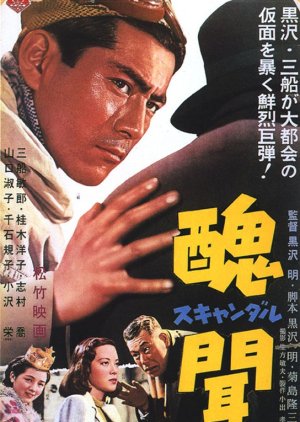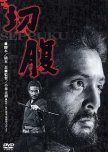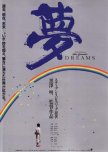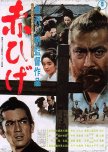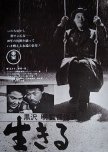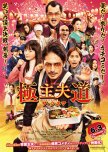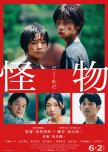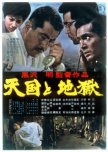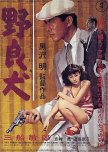
Cette critique peut contenir des spoilers
"If you don't let what's in your heart out, you'll choke on it"
Kurosawa calls upon his characters to stand up for what's right even if the odds are against them in Scandal. Honor, weakness, redemption, and a rebel painter on a motorcycle all figure into this film.A young, handsome Mifune Toshiro played the painter Aoye Ichiro who rebelliously road his motorcycle everywhere. When he offered a beautiful singer, Shirley Yamaguchi as Saijo, a ride back to her hotel in the mountains where he was also staying, the dominoes were stacked. The paparazzi had followed her to the hotel where she refused to have any pictures taken. In a genuinely chaste moment, the two were photographed together in what could have looked like an intimate scene. The tabloid wrote a salacious story about the two having a romantic getaway which went viral in a 1950's manner. When one of the photographers asked if it was okay to write a false story, the boss told him, "It doesn't matter if it's true. Once it's in print the public believes it." And therein lies one of Kurosawa's themes-the unscrupulous press who valued sales over truth and a gullible public who would believe it.
Ichiro decided to sue the magazine for the trouble brought down on himself and Saijo. Another theme-understanding the difference between right and wrong and standing up for what was right regardless of the consequences. In stumbled Hiruta Otokichi (Shimura Takashi) a lawyer begging for the job of representing him and the story became something else. Ichiro decided to hire Hiruta after meeting his tuberculosis bedridden daughter, a purity of love and light. The story now became focused on Hiruta's weakness. Weakness for money, betting, drinking, and in general doing all the things he considered loathsome...including selling out his client. Another theme-the disintegration of the ability to tell the difference between right and wrong in post war Japan. The film also began to center on Hiruta's weaknesses more than the court case and the gradual road to his redemption guided by his daughter and a motorcycle riding artist.
There were times in this film I thought I was watching a version of It's a Wonderful Life only with a down and dirty Clarence. It felt Capraesque in several places. For a Kurosawa film it was more sentimental and predictable than I would have thought. The shift from the story focusing on Mifune and Yamaguchi to Shimura's character was jarring. I normally enjoy Shimura's performances, but his hang dog, self-castigation went on too long for me. He would perfect this "poor me" performance for Ikiru. Fortunately, there were some lighter moments to break up all of his self-recriminations. As lovely as they were, Ichiro and Saijo came across rather one note and too perfect. Even with his habit of gunning his motorcycle and painting nudes, Ichiro practically squeaked when he walked, he was so clean and honorable.
The harsh commentary on the tabloids, moral disintegration, and the judicial system was not subtle. There was the obvious lament that while the fake news stories sold in the tens of thousands, Ichiro had trouble selling his actual works of art. Ultimately, the focus became about Hiruta's weaknesses without condemning them, simply exploring them and his reasons for them. Finally, watching as his lifeline was assembled, one that in the end might condemn him but set him free at the same time was worth rooting for. It takes a lot of courage to become a shining star reflected in a polluted pool of water.
I enjoyed this film, but not as much as I hoped I would. It was definitely worth watching for seeing Mifune Toshiro transporting a decorated Christmas tree on the back of his motorbike.
10/5/22
Cet avis était-il utile?

